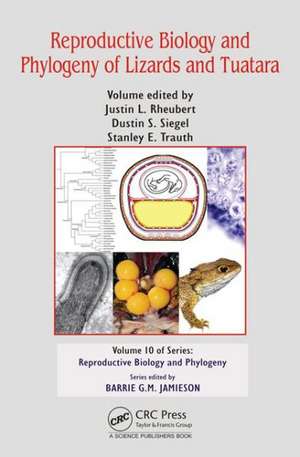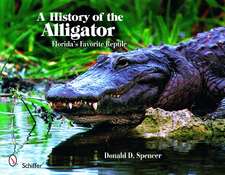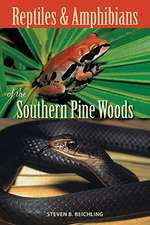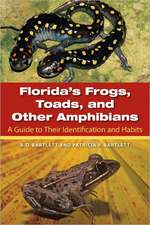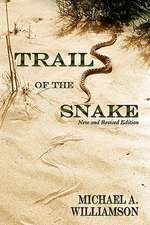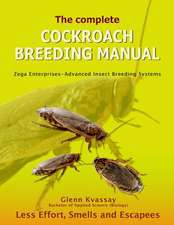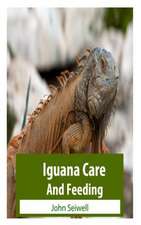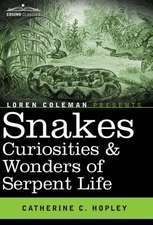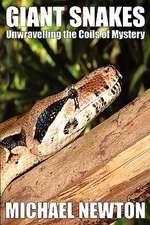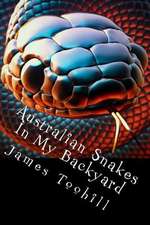Reproductive Biology and Phylogeny of Lizards and Tuatara: Reproductive Biology and Phylogeny
Editat de Justin L. Rheubert, Dustin S. Siegel, Stanley E. Trauthen Limba Engleză Hardback – 19 dec 2014
Following these chapters are detailed reviews with additional new data concerning chemical communication, sexual selection, reproductive cues, female reproductive anatomy, female reproductive cycles, oogenesis, parthenogenesis, male reproductive anatomy, male reproductive cycles, spermatogenesis, reproductive investment, viviparity and placentation, multiple paternity, and parental care.
The book culminates in two chapters on tuatara reproduction giving unique insight into evolutionary patterns in reproductive biology in squamates and tuatara. This is an essential resource for anyone studying reproduction in reptiles and/or vertebrates and offers a fascinating read for those interested in reproductive biology.
Preț: 1406.72 lei
Preț vechi: 1715.51 lei
-18% Nou
Puncte Express: 2110
Preț estimativ în valută:
269.18€ • 287.84$ • 224.43£
269.18€ • 287.84$ • 224.43£
Carte tipărită la comandă
Livrare economică 18 aprilie-02 mai
Preluare comenzi: 021 569.72.76
Specificații
ISBN-13: 9781466579866
ISBN-10: 1466579862
Pagini: 760
Ilustrații: 119 black & white illustrations, 50 colour illustrations
Dimensiuni: 156 x 234 x 43 mm
Greutate: 1.18 kg
Ediția:1
Editura: CRC Press
Colecția CRC Press
Seria Reproductive Biology and Phylogeny
Locul publicării:Boca Raton, United States
ISBN-10: 1466579862
Pagini: 760
Ilustrații: 119 black & white illustrations, 50 colour illustrations
Dimensiuni: 156 x 234 x 43 mm
Greutate: 1.18 kg
Ediția:1
Editura: CRC Press
Colecția CRC Press
Seria Reproductive Biology and Phylogeny
Locul publicării:Boca Raton, United States
Cuprins
Lizard reproduction: A history of discovery. The phylogeny of lizard families. Pheromones and chemical communication in lizards. Sexual selection and sexual dimorphism. Cues for reproduction in squamate reptiles. Female reproductive anatomy: cloaca, oviduct, and sperm storage. Female reproductive cycles. Oogenesis. Discovery of parthenogenesis in lizards. Male reproductive anatomy: the gonads, gonadoducts, sexual segment of the kidney, and cloaca. Male reproductive cycles. The architecture of the testis, spermatogenesis, and mature spermatozoa. Evolutionary ecology of reproductive investment in lizards. Viviparity and placentation in lizards. The complexity of understanding patterns of multiple paternity in lizards. The evolutionary ecology of parental care in lizards. Reproductive anatomy and cycles of tuatara (Sphenodon punctatus), an intriguing non-squamate lepidosaur. The ultrastructure of spermatogenesis and spermatozoa of the tuatara Sphenodon punctatus (Sphenodontidae: Amniota).
Notă biografică
Justin L. Rheubert, Dustin S. Siegel, Stanley E. Trauth
Recenzii
"Ce livre constitue un document de synthèse indispensable. Reproductive Biology and Phylogeny of Lizards and Tuatara est une source inépuisable d’informations. C’est un ouvrage riche et complet rédigé par les meilleurs spécialistes du domaine. Nous recommandons sans réserve cet ouvrage qui est une mine d’informations mais qui s’adresse surtout aux herpétologistes confirmés."
— Ivan Ineich, Bull. Soc. Herp. Fr., 2016 (Original)
"This book constitutes an essential summary document. Reproductive Biology and Phylogeny of Lizards and Tuatara is an inexhaustible source of information. It is a rich and comprehensive book written by the best specialists in the field. We wholeheartedly recommend this book, which is a wealth of information but which is primarily intended for experienced herpetologists."
— Ivan Ineich, Bull. Soc. Herp. Fr., 2016 (Translated)
— Ivan Ineich, Bull. Soc. Herp. Fr., 2016 (Original)
"This book constitutes an essential summary document. Reproductive Biology and Phylogeny of Lizards and Tuatara is an inexhaustible source of information. It is a rich and comprehensive book written by the best specialists in the field. We wholeheartedly recommend this book, which is a wealth of information but which is primarily intended for experienced herpetologists."
— Ivan Ineich, Bull. Soc. Herp. Fr., 2016 (Translated)
Descriere
This book serves as a thorough review of reproductive biology and phylogeny of lizards and tuatara, a distant relative of lizards. The book is edited by an experienced team with over 400 publications and covers topics including, but not limited to, chemical communication, reproductive anatomy, reproductive cycles, molecular systematics, parental care, and mate choice. This review is a collective piece with authoritative authors from around the globe including the United States, South Africa, Australia, New Zealand, South America, and Mexico.
